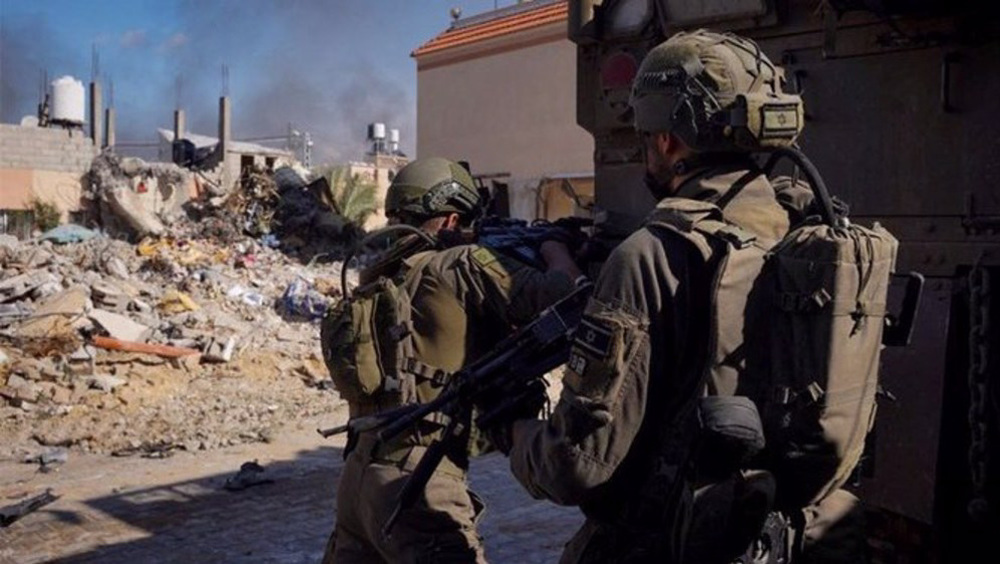AhlulBayt News Agency: A report says Israel’s top generals are advocating a ceasefire in the Gaza Strip, amid fears of a potential war with the Lebanese resistance movement Hezbollah.
The New York Times, citing multiple Israeli officials, reported on Tuesday that the generals seek to begin a truce in Gaza even if it keeps the Palestinian resistance movement Hamas in power for the time being.
The report said the generals think the regime’s forces need time to recuperate in case a bigger war breaks out against Hezbollah, given that Israel is unequipped for further fighting after its months-long war in Gaza.
A truce with Hamas could also facilitate a deal with Hezbollah, the Israeli officials said, who spoke on the condition of anonymity.
The report said Israeli generals believe a truce is the best way to secure the release of roughly 120 Israeli prisoners still held in Gaza.
According to the New York Times report, the generals’ stance has reportedly created a rift between the military and Prime Minister Benjamin Netanyahu, who has firmly rejected any ceasefire proposal in Gaza.
The Israeli military’s full support for a ceasefire also “reflects a major shift in its thinking over the past months, as it became more clear that Netanyahu was refusing to articulate or commit to a postwar plan,” the report said.
Eyal Hulata, a former Israeli adviser who regularly speaks with senior military officials, also said the military is in full support of a prisoner swap and a ceasefire deal.
Hulata said the military has “less munitions, less spare parts, less energy than they did before — so they also think a pause in Gaza gives us more time to prepare in case a bigger war does break out with Hezbollah.”
“Therefore, the military fears a prolonged conflict where its resources are gradually depleted while prisoners remain in Gaza and Hamas leaders stay at large. In this scenario, keeping Hamas in power temporarily in exchange for prisoners releases seems like the least worst option for Israel.”
The Israeli regime and Hezbollah have been exchanging fire along Lebanon’s southern border on an almost daily basis since October 7.
The exchange of fire has intensified since Israel assassinated senior Hezbollah commander Sami Taleb Abdullah.
The movement has retaliated by firing hundreds of rockets into the northern parts of the occupied territories.
Back in June, the Israeli army said it had approved plans for an attack on Lebanon, raising concerns that the regime might try to realize its recurrent threats of turning Lebanon into another Gaza.
Hezbollah Secretary-General Sayyed Hassan Nasrallah has already warned that “no place” in the Israeli-occupied territories would be spared from the group’s weapons in the event of a full-blown war.
/129
The New York Times, citing multiple Israeli officials, reported on Tuesday that the generals seek to begin a truce in Gaza even if it keeps the Palestinian resistance movement Hamas in power for the time being.
The report said the generals think the regime’s forces need time to recuperate in case a bigger war breaks out against Hezbollah, given that Israel is unequipped for further fighting after its months-long war in Gaza.
A truce with Hamas could also facilitate a deal with Hezbollah, the Israeli officials said, who spoke on the condition of anonymity.
The report said Israeli generals believe a truce is the best way to secure the release of roughly 120 Israeli prisoners still held in Gaza.
According to the New York Times report, the generals’ stance has reportedly created a rift between the military and Prime Minister Benjamin Netanyahu, who has firmly rejected any ceasefire proposal in Gaza.
The Israeli military’s full support for a ceasefire also “reflects a major shift in its thinking over the past months, as it became more clear that Netanyahu was refusing to articulate or commit to a postwar plan,” the report said.
Eyal Hulata, a former Israeli adviser who regularly speaks with senior military officials, also said the military is in full support of a prisoner swap and a ceasefire deal.
Hulata said the military has “less munitions, less spare parts, less energy than they did before — so they also think a pause in Gaza gives us more time to prepare in case a bigger war does break out with Hezbollah.”
“Therefore, the military fears a prolonged conflict where its resources are gradually depleted while prisoners remain in Gaza and Hamas leaders stay at large. In this scenario, keeping Hamas in power temporarily in exchange for prisoners releases seems like the least worst option for Israel.”
The Israeli regime and Hezbollah have been exchanging fire along Lebanon’s southern border on an almost daily basis since October 7.
The exchange of fire has intensified since Israel assassinated senior Hezbollah commander Sami Taleb Abdullah.
The movement has retaliated by firing hundreds of rockets into the northern parts of the occupied territories.
Back in June, the Israeli army said it had approved plans for an attack on Lebanon, raising concerns that the regime might try to realize its recurrent threats of turning Lebanon into another Gaza.
Hezbollah Secretary-General Sayyed Hassan Nasrallah has already warned that “no place” in the Israeli-occupied territories would be spared from the group’s weapons in the event of a full-blown war.
/129

